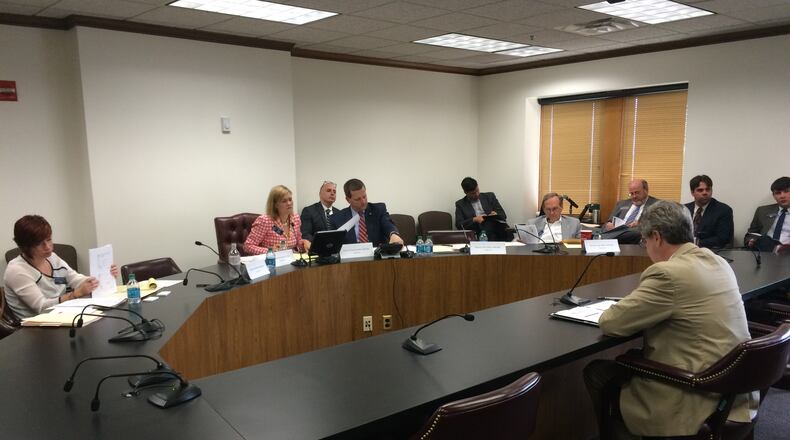Before Georgia lawmakers give the go-ahead to any more cities, they should consider enacting stricter requirements on proposed municipalities, according to experts and government officials who made suggestions to senators Tuesday.
Perhaps communities should have to gather residents’ signatures in a petition to show support for the cityhood idea, some said.
Or maybe someone should evaluate the financial impact that cities have on their surrounding unincorporated areas, which lose some of their tax base to incorporations.
And how should the state handle the effects of annexations on schools, as in the case of proposals for Atlanta to expand into Druid Hills and South Fulton, which could displace students?
A Senate study committee heard these ideas and others as part of an effort to revise the state's sometimes messy cityhood process, possibly by proposing a bill in next year's legislative session.
Two proposed cities, LaVista Hills and Tucker, will be on the ballot Nov. 3 after the Georgia General Assembly signed off on them earlier this year. Other potential cities including South Fulton, Stonecrest, Greenhaven and Sharon Springs are still pending.
“Every state is dealing with this,” said Laura Wheeler, a senior research associate at Georgia State University’s Fiscal Research Center. “No one has a great, perfect plan.”
Senators heard from Wheeler as well as a University of Georgia analyst, Fulton County officials and others during their three-hour hearing.
Forty-one states require residents to present a petition showing sufficient community support before areas can become cities, said Ted Baggett, an associate director in the University of Georgia’s Carl Vinson Institute of Government. Georgia is one of seven states with a legislative process for cityhood.
Two more hearings are planned before the committee decides on its recommendations for reform.
About the Author
The Latest
Featured


